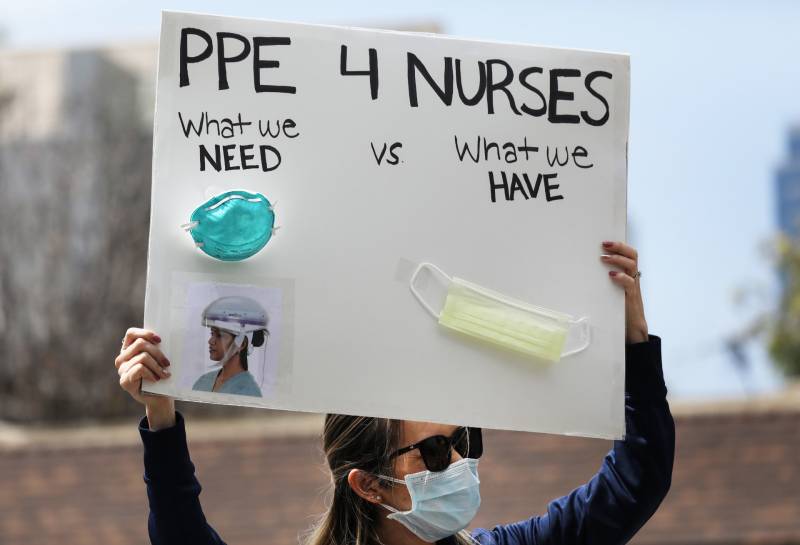Kaiser Permanente has already issued nurses masks sterilized by Sterrad machines. One of Kaiser’s first California hospitals to get the machine was in Roseville.
“Battelle is providing critical support to our healthcare professionals across the country who are in desperate need for N95 respirator masks,” said Matt Vaughan, Battelle’s contract research president, in a press statement about its decontamination technology.
But Joanne Imwalle, a Kaiser Permanente nurse in Roseville, said the sterilization techniques for N95 masks haven’t been tested enough to grant her assurances that she won’t contract COVID-19 or spread the virus. Imwalle has worked in and out of hospitals for 37 years.
On the phone with KQED News, the nurse’s voice shook with fury.
“When I talk to my neighbor or go into a grocery store, could I infect my neighbors and community members? It’s so egregious to me it’s overwhelming at times,” Imwalle said. “I went into this to save lives, not to sacrifice mine.”
One representative of SEIU Local 1021, which represents roughly 4,000 nurses in the Bay Area, called the method “dangerous.”
“There is no plausible rationale for recycling (personal protective equipment),” said Sasha Cuttler, a nurse at San Francisco’s Laguna Honda Hospital, which experienced an outbreak of COVID-19 in early April. Cuttler, who is also the Registered Nurse Chair of SEIU Local 1021, warned sterilized masks may pose a new threat.
Statewide Shortage
Advanced Sterilization Products conducted its own tests of the Sterrad system in partnership with N95 mask manufacturers, a company spokesperson said, and submitted those test results to the FDA in order to obtain its emergency use authorization.
“FDA may issue an (emergency use authorization) when certain criteria are met, which includes that there are no adequate, approved, available alternatives, and based on the totality of scientific evidence available, it is reasonable to believe the ASP Sterrad Sterilization System may be effective at decontaminating compatible N95 respirators,” a company spokesperson wrote to KQED News.

